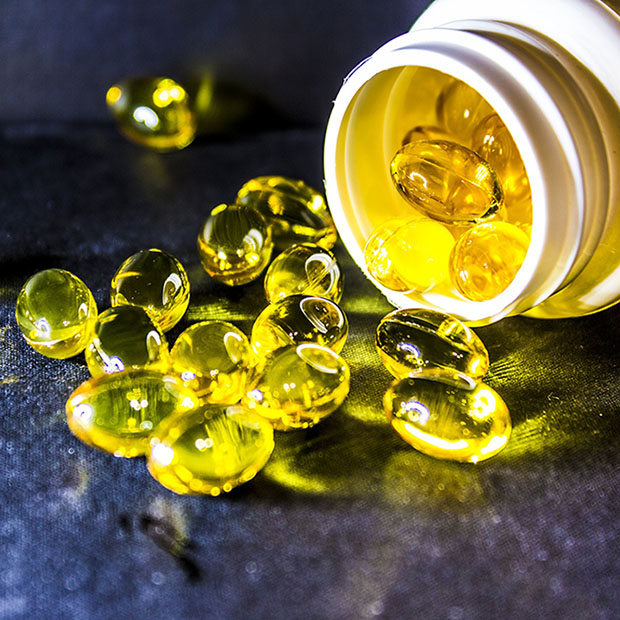Flaxseed Oil Or Fish Oil For Dry Eye?

If you’ve ever been near the pharmacy in a grocery store, you’ve probably seen the aisles of nutrition supplements for sale.
These products claim to have a variety of benefits, but today we just want to focus on two: flaxseed oil and fish oil, and what they can do to combat dry eye.
The Dangers Of Dry Eye
The tear film is the eye’s first line of defense against irritants and germs, trapping them so they can be flushed away with each blink. Tears also help our eyes move comfortably. Tear production is somewhat complex, as there are three layers to the tear film that need to stay balanced. Whether overall tear production decreases, the oily layer is disrupted, or the balance is compromised, if something goes wrong, the result can be dry, itchy, irritated, and vulnerable eyes.
There are a number of things we can do to treat dry eye, including taking more breaks from staring at our screens, switching from contact lenses to glasses, and using eye drops, but we can also incorporate more omega-3 fatty acids into our diets. Two great sources of these are flaxseed oil and fish oil.
Flaxseed Oil
What makes flaxseed oil good for our eyes is that it contains high levels of alpha-linolenic acid (ALA), an important omega-3. The digestion process converts it into two omega-3 fatty acids (EPA and DHA) that promote strong cell membranes throughout the body, including in the eyes.
Flaxseed oil supplements come in both liquid and capsule form, but you can grind your own flaxseeds and sprinkle them over a salad or add them to a smoothie instead for the same omega-3 benefits. The capsules may be the most convenient, but it can take a large number of them to achieve the desired dose.
Fish Oil
Flaxseed oil will probably be the better choice for vegetarians, but it doesn’t provide as much EPA and DHA as fish oil. Our bodies only convert a small percentage of ALA from plant-based foods into these omega-3 fatty acids, but EPA and DHA are already present in fish oil, so we can get the full benefit without having to break them down first.
If fish oil capsules tend to leave a fishy taste in your mouth, you might prefer to get your omega-3 benefits from delicious grilled fish instead! The best fish for EPA and DHA are salmon, tuna, halibut, and sablefish.
Bring Us Your Omega-3 And Dry Eye Questions
As with all supplements and remedies, it’s important to seek professional medical advice before taking matters into your own hands. What works for other people won’t always work for you, so give us a call or schedule an appointment so that we can determine whether flaxseed oil or fish oil is a good dry eye solution!